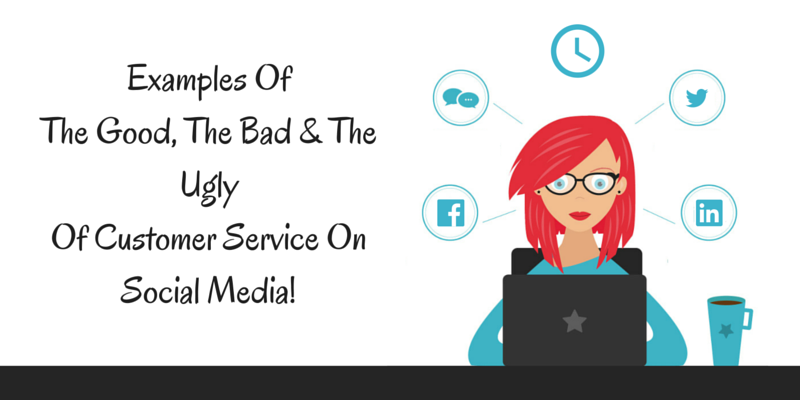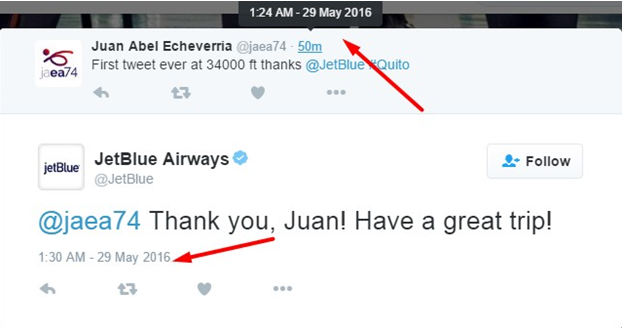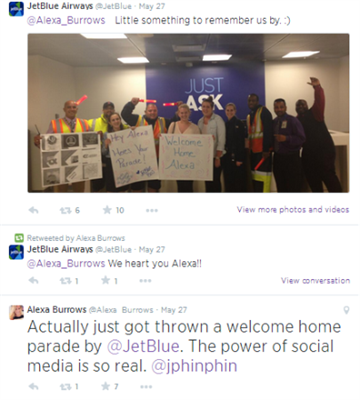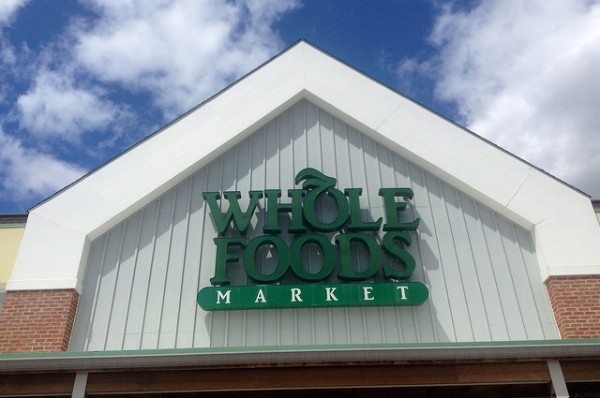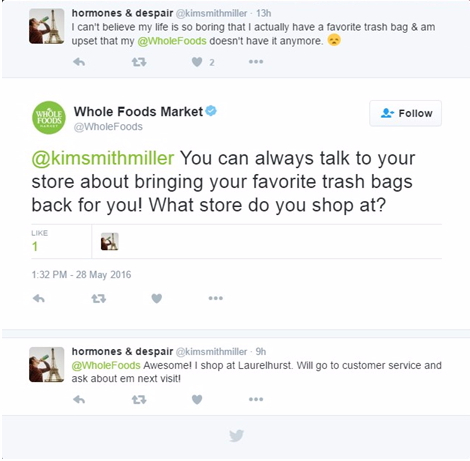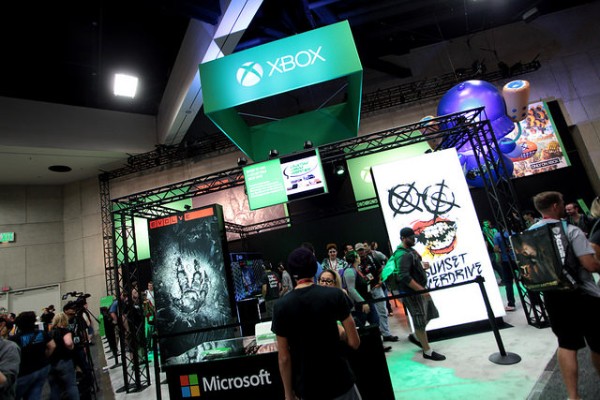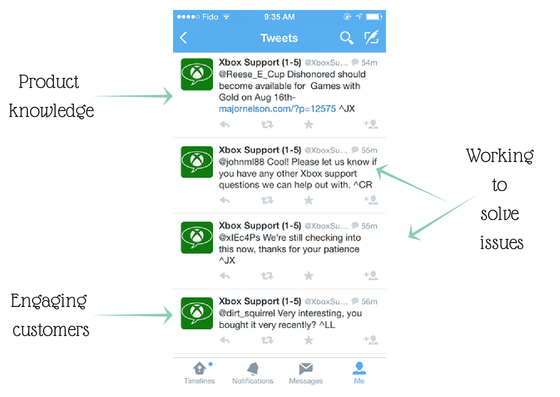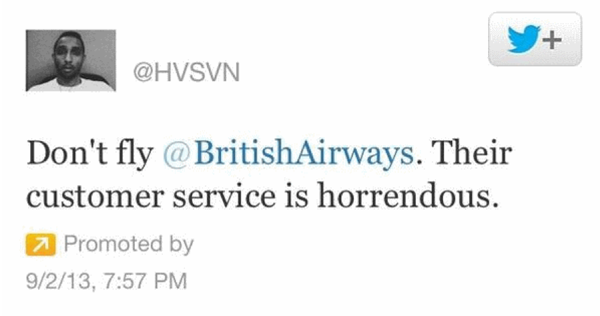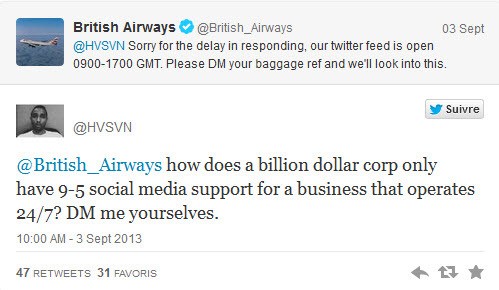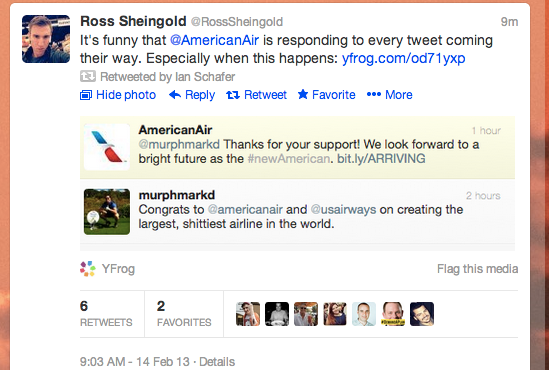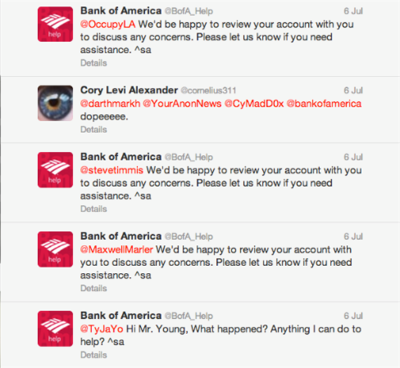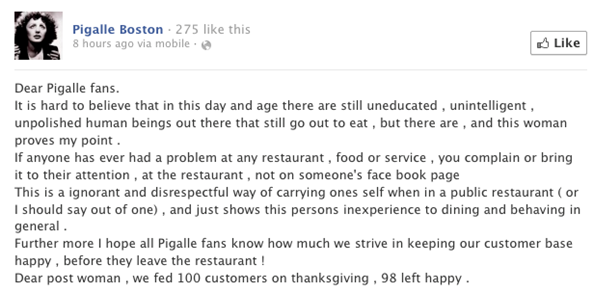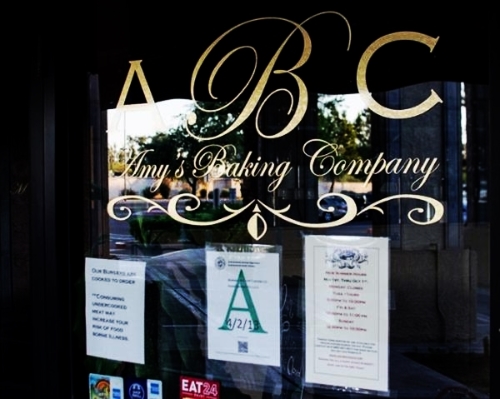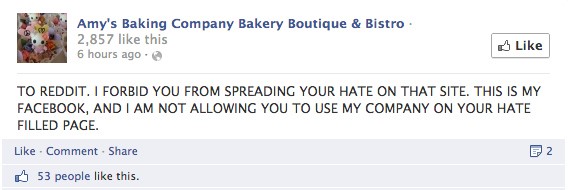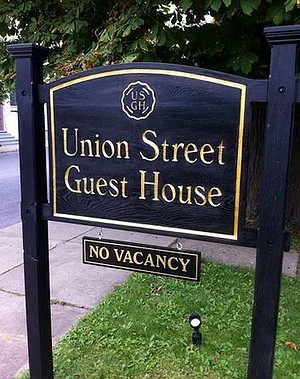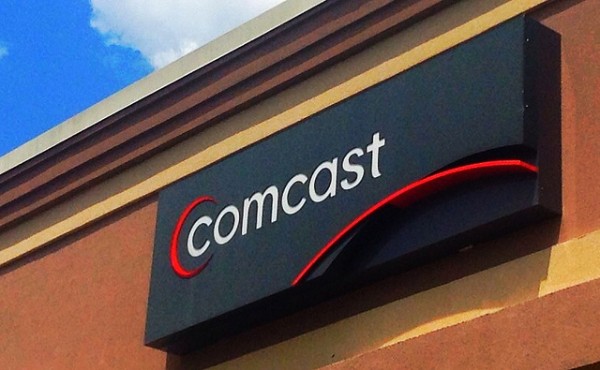We all know that criticism can sometimes be hard to take, but we also learn very early on that it usually makes for a stronger and better business.
But today, the stakes have gotten even higher.
Now, customer complaints are increasingly being channeled through the oh-so-public social media platforms, such as Facebook and Twitter. This means that companies have to get on board fast, or risk the wrath of their unhappy customers’ complaints and criticisms going viral.
A 2013 study by Simply Measured showed that 30% of brands have a dedicated customer service handle on Twitter, with the average response to a complaint being 5.1 hours. Only 10% of companies answered within the hour.
And the numbers haven’t gotten any better since then.
In 2015, a study by brandwatch showed that most retail brands still don’t listen to customers on Twitter. They discovered that 46.6% of brands engaged with any tagged @mentions (which were categorized as neutral, questions or complaints). 64.6% responded to questions within 5 days and only 11.2% responded within one hour.
To help you figure out how to handle customer service on social media the right way, I’ve compiled some examples of the good, the bad and the ugly so you can learn what you should and shouldn’t be doing!
4 Examples of Good Customer Service on Social Media
Example #1: JetBlue
Airlines often come under a lot of scrutiny and criticism.
And no wonder!
People are frequently tired, stressed or nervous when flying, so we can be a little on edge. This means that if a flight is delayed or cancelled or there’s subpar customer service, it’s easy to see why they get a lot of grief.
But unlike other airlines who are infamous for their poor customer service (Ryanair, I’m looking at you) Jetblue have taken notes, done their homework, and they’re ready at the helms.
And with a little over 2 million followers, you know that the work has paid off.
Jetblue makes sure that they engage their customer base in a fun and friendly way, that they deal with complaints as patiently as possible and they do it all in a timely manner.
What else could you possibly want?
Engaging Quickly
As you can see in the image below, Jetblue responded only 6 minutes after this customer tweet them. And as you can see, there was no personal gain in this piece of engagement.
Going The Extra Mile
Here we see how well the customer service teams at Jetblue work together. After @Alexa_Burrows tweeted @Jetblue about being upset at having to go home and (jokingly) asked for a parade to greet her at her gate, the @Jetblue Twitter team sent the tweet over to the airport that Alexa would be landing at.
And what did that airport’s customer service do??
They held her a little welcome home parade!
Because… well… why not!?
In an interview with Laurie Meacham, JetBlue’s Manger of Customer Commitment, Laurie tells us that there are actually three different teams running the @Jetblue Twitter account: The Marketing team, the Communications team and the Customer Commitment team.
But that’s not the only thing putting them over the top.
Laurie states that they purposely don’t measure response rates on Twitter to encourage to employees “to engage smartly, and for the conversations to be organic and natural. We look for opportunities to add value and connect with our customers, not just respond to every single mention that comes our way”.
This philosophy has meant that Jetblue has become well-known and loved for its fantastic customer service.
Example #2: Whole Foods
With 4.83 million followers, @WholeFoods’ Twitter account is not to be ignored.
With that many followers, you think they’d be pushing their brand and product messages more, but no.
Not only do they engage with customers like so:
But they’re also going the extra mile with relevant and informational blog posts, giving tips and advice on food prep and cooking, and sharing delicious looking recipes.
@Wholefoods’ content sharing on social media caters specifically to their audience: A demographic that is paying premium prices for organic, free-range foods.
Through their Twitter accounts, Wholefoods is adding even more value to their products.
And to top it all off: They’re not keeping it corporate.
In fact, they have over 300 different Twitter accounts and 250 Facebook accounts, mostly run by local employees. This gives their Twitter presence a personal touch, with the local employees able to cater to their target market more specifically.
Example #3: XBox
Xbox hold the Guinness World Record for “Most Responsive Brand on Twitter”.
Yeah. There’s a record for that now.
Anyways, the Xbox Twitter team, also known as the “Elite Tweet Fleet” has 841 thousand followers as of June 2016.
Their hours are 6am – 12am PT Monday to Sunday, which is more than reasonable for a tech support team, but they also advertise this very clearly on their Twitter bio.
This customer support that is fast to respond, fun and engaging with customers, asking the right questions and trying their best to solve any issues while also keeping their fans up-to-date with the latest releases, tech and games.
This is what an average day on their Twitter account looks like:
Example #4: TD Bank
TD (or Toronto-Dominion) Bank is the second largest bank in Canada.
Besides responding promptly to 95.1 thousand followers on their Twitter account, they’re also famous for going the extra mile with the ‘TDThanksYou’ Campaign they started in 2014.
Whether it’s surprising their customers with their Automated Thanking Machines or by throwing them a #ThenAndNow photo exhibition, they are sure going to make you all emotional.
We warn you, this video might get you all teary:
3 Examples of Bad Customer Service On Social Media
Bad customer service usually involves late responses, no responses, inappropriate responses or automated responses.
The bad is simply companies who haven’t quite “got it” yet.
Example #1: British Airways
British Airways has been under fire quite a bit for its bad customer service, and social media only escalates their problem.
This is exactly what happened with Hassan Syed paid to promote a Tweet complaining about British airways’ customer service after they lost his father’s suitcase.
The tweet was seen by 76,000 users.
To make things worse, BA failed to respond to the promoted tweet for eight hours.
Giving it plenty of time to go viral.
Of course, I’m not saying that all companies need to have 24/7 Twitter accounts.
But really, a large airline that runs 24/7 should have some sort of response team ready at all times for such a scenario.
Example #2: American Airlines
Being positive is a good thing.
It really is.
Except, you know… when it makes absolutely no sense.
Of course, it’s not uncommon to send out automatic responses on Twitter as a way of handling the amount of @mentions that companies get.
But automation still needs close monitoring to make sure that it makes sense.
@AmericanAir was caught out when they send out upbeat responses to customer complaints.
Example #3: Bank of America
Another Twitter account that suffered at the hands of robots (however, they claimed that it was actually human customer service representatives, although I find that hard to believe) is Bank of America.
After @darthmarkh tweeted about being chased away by NYC police for drawing with chalk on a sidewalk outside of Bank of America, Bank of America customer service twitter team @BofA_help responded with the generic “we’d be happy to review your account with you to discuss any concerns” tweet.
But it didn’t just end there, the @BofA_Help tweeted the exact same generic answer to anyone who commented on @darthmarkh’s original post.
Regardless of what the tweets actually said, the tweeters were offered the same help.
3 Examples Of Ugly Customer Service On Social Media
I thought it’d be hard to find any “ugly” customer care on social media.
Sure, there’s plenty of bad, negligent customer care, but downright ugly?
No company could be so stupid, right?
Wrong.
Example #1: Pigalle Restaurant in Boston
Marc Orfaly, chef of Pigalle in Boston, ignored the fact that social media has a way of going viral very quickly. And never, ever being forgotten.
After a customer complained about her Thanksgiving meal on Facebook, the chef responded with a “go f*** yourself”.
Many people were quick to take sides in the ensuing argument, even some in defense of the chef.
But others were quick to note that the customer had spent $200 on the meal and had every right to her criticisms, without fear of being verbally abused as a response.
To make matters worse, Pigalle Boston posted a status on Facebook that people were “uneducated, unintelligent, unpolished human beings”. Which, of course, was later removed. But, obviously, the internet will never forget…
The story does have a happy ending with the customer and the chef making amends, but let it be a warning to you on how not to respond to customer complaints on social media, even if the comment did claim that your food tasted like “vomit”.
Example #2: Amy’s Baking Company Bakery Boutique& Bistro
After Amy’s Baking Company Bakery Boutique & Bistro appeared on Gordon Ramsay’s TV show Kitchen Nightmares (and was subsequently dropped because the owners were too difficult to work with) their social media exploded with customer comments and complaints.
What did they do?
Well, I couldn’t fit them all in to this blog post, but here’s just a few of their Facebook posts.
I’m not sure if there’s even a lesson that most fully-grown adults haven’t already learnt here.
Ehm… Don’t yell and curse at people. Especially not your customers, in the restaurant, in front of everybody and on social media.
Example #3: Union Street Guest House
Another ugly way to handle customer service over social media?
Fine people who leave you bad reviews.
In an unbelievable attempt to try and dissuade wedding guests from leaving bad reviews of them on Yelp, one New York hotel, Union Street Guest House, threatened to fine people $500 for bad reviews.
The policy (which has since been removed) stated that:
“There will be a $500 dollar fine that will be deducted from your deposit for every negative review of USGH place on any internet site by anyone in your party and/or attending your wedding even if you stay here to attend a wedding anywhere in the area and leave us a negative review on any internet site you agree to a $500 fine for each negative review.”
Can you guess how people reacted?
Badly, of course. The hotel’s Facebook page was flooded with angry consumers (not always necessarily customers) complaining about the ridiculous policy.
The hotel management has since removed it as a policy, claimed it was a “joke” (even though customers have come forth stating that the hotel had actually tried to enforce it) and that they were unaware of how the internet worked.
Uhm… Ok. Sure.
Bonus!!!
Proving that bad customer service doesn’t need to take place online for it to go viral, is Comcast.
A well-known tech blogger, determined to out Comcast’s awful customer service, recorded a horrible call he had with a Comcast employee who tried to do everything in his power to prevent the service cancellation.
When the call went viral, Comcast responded admitting to training their employees, or “Retention agents”, to do just as was recorded.
Comcast, who is almost famous for their bad customer service alone, says that they’re not going to change their Retention programme because they believe in their product’s quality. But with their own employees grieving over the awful customer service that they’re almost encouraged to give, and with Comcast ranking the worst company for customer service in the U.S., that idea seems like a complete joke.
The very simple fact of the matter is: Good companies with good products, have good customer service in place in order to bolster the customer’s experience.
The moral of the story is: You get what you give.
If you are giving bad customer service, you’ll get negative reactions. Good customer service, gets positive customer reactions. Ugly customer service, well… you’ve seen what that will give you.
Want to make sure you don’t end up as one of these guys? Check out How To Cheat at Customer Service on Social Media (and Get Away with it).
Or if you have any good, bad, or dare I say it, ugly customer service on social media stories, please do share!
Editor’s note:
This post was originally published in August 2014 and has been updated with new research information and examples.
